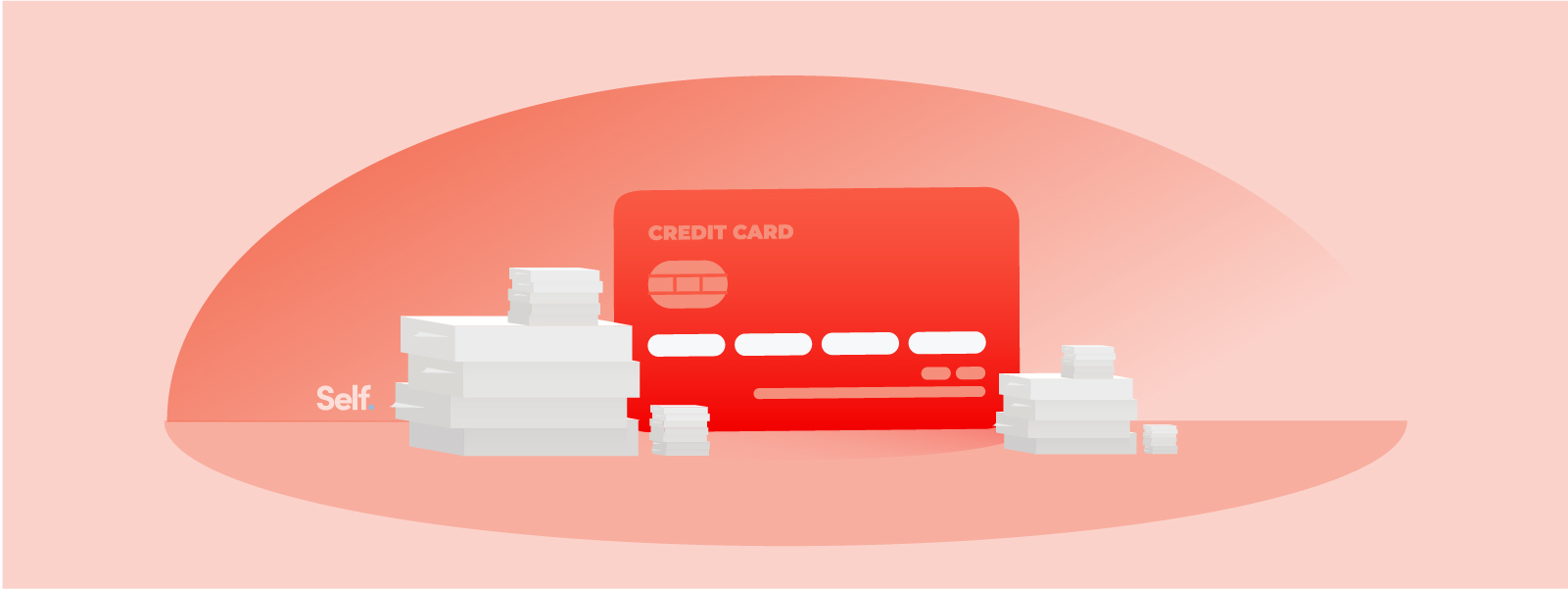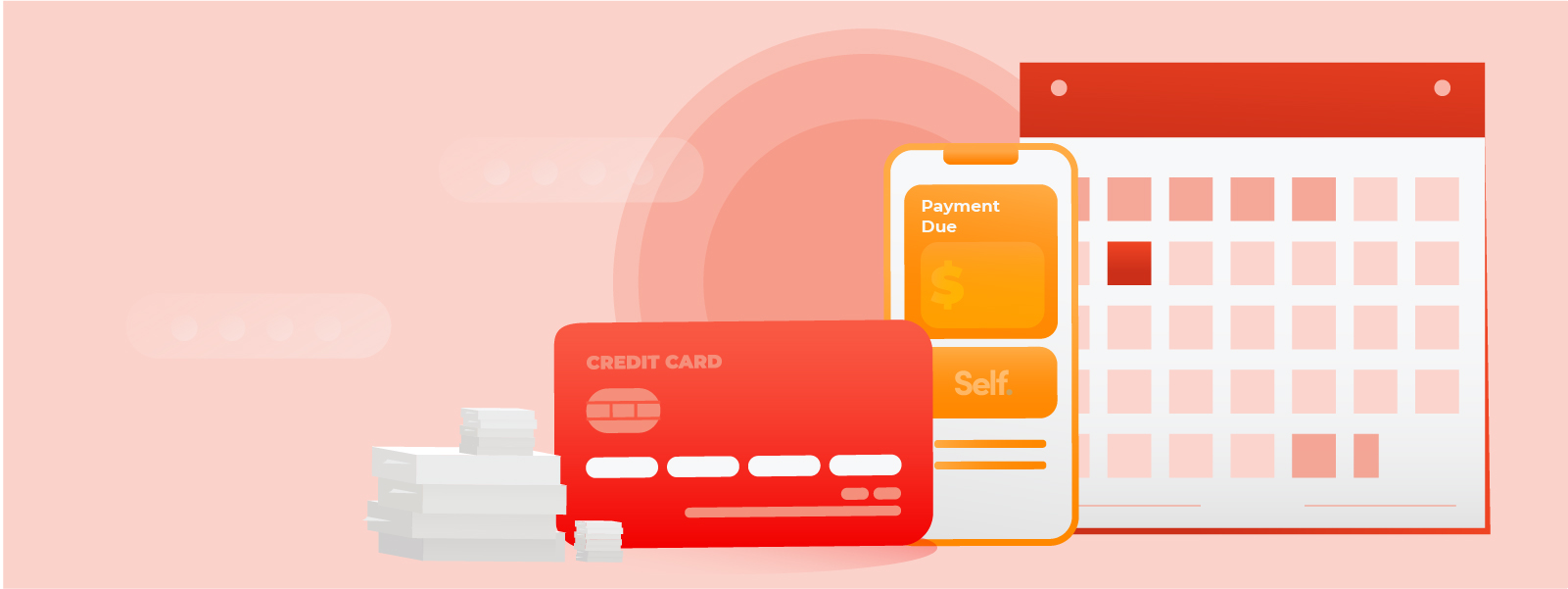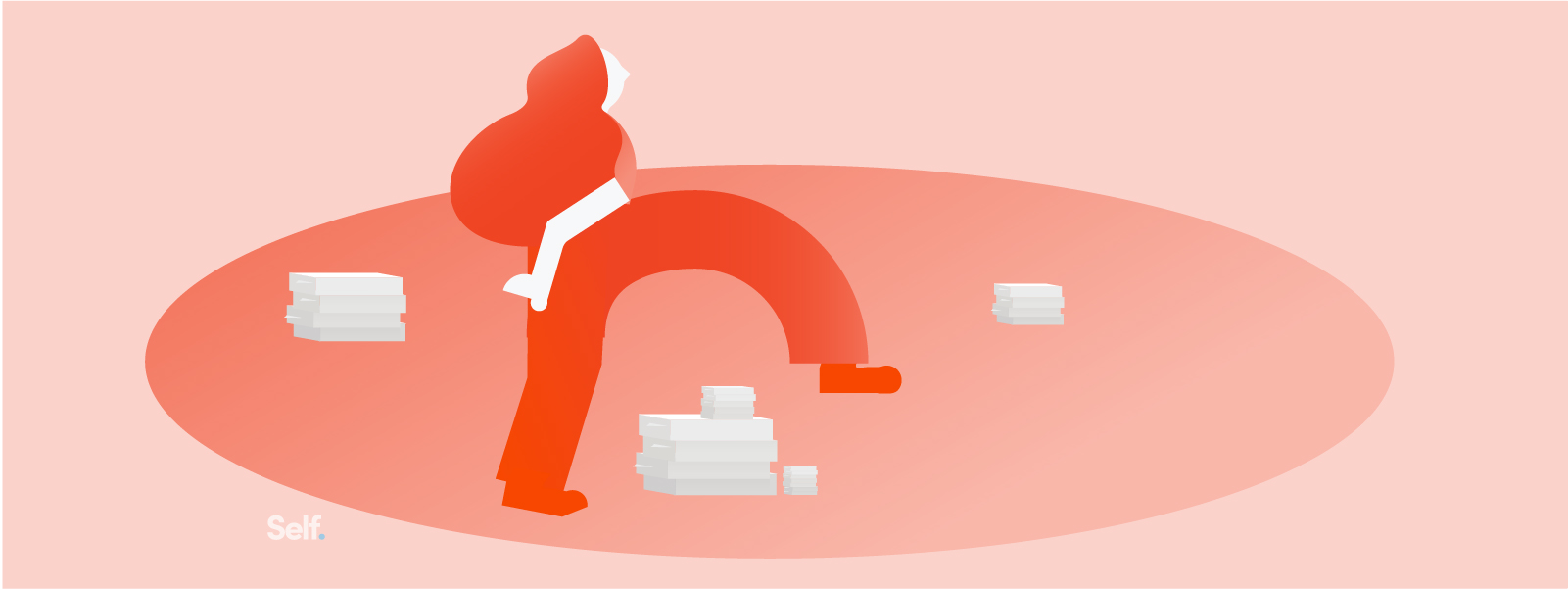How to Use a Credit Card Wisely to Build Credit
Credit cards can be a powerful tool for your personal finances. Like any tool though, your credit card can be harmful if it isn't used wisely. If you don’t know how to use a credit card, it’s helpful to learn a thing or two before you go to open up a new credit card. You may also want to look into the difference between debit and credit cards.
But how to use a credit card wisely, exactly? If you don’t know how to use a credit card responsibly, you've come to the right place. Some people are able to use a credit card to build their credit history and depending on the credit card, possibly earn rewards. But for others, using credit cards and credit wisely means not using them at all.
Are credit cards “good”?
Asking if a credit card is good or bad is like asking if hammers or screwdrivers are. Credit cards are financial tools, and shouldn’t be thought of as inherently good or bad. Instead, it’s up to the cardholder to determine how his or her cards will be used.
If you use your credit card and incur a costly interest charge and fee, because you paid late and hurt your credit, then credit cards could certainly bad for you. In fact, the average US household now has $8,942 in total credit card debt, according to a recent study.
But if you use your credit cards as a secure and convenient method of payment, while building your credit history and utilizing valuable cardholder benefits, then certainly credit cards can be good for your personal finances.
Let’s explore what responsible credit card use looks like, and how it can benefit you and your personal finances.
Know your terms and conditions before signing up
Before you open your credit card account with a bank or financial institution, make sure you are fully aware of the terms and conditions of the card. Not all credit cards are created equal. Be sure to do research on the credit card and the credit card company. Does your card come with cash rewards? Does it have a high interest rate which could lead to higher payments? Make sure to ask as many questions as possible before opening up a credit account with a credit union or bank.
Avoiding interest costs and debt

The first goal of responsible credit card use is to minimize - or completely avoid - interest charges. These interest rates are imposed on your account's average daily credit card balance, and can result in extremely costly charges over time.
According to the most recent statistics from the Federal Reserve, the average credit card interest rate in June 2022 on accounts that were assessed interest is nearly 17%. If you have poor credit, that rate will be much higher.
Thankfully, you can use a credit card without paying any interest charges to your financial institution. The key to avoiding interest is to pay your statement balances in full, and on-time, every month. When you do this, you will get to use your credit card at no monthly cost. In that scenario, you're basically receiving an interest free loan every month, courtesy of your credit card issuer.
But what if you're unable to pay your balance in full to the credit card provider every month? Here are a few approaches to consider:
- Avoid using your card completely
- Restrict how and when you use your card
- Always pay more than the minimum balance on your monthly credit card bill
- Make more frequent payments to your card provider
- Manage your credit card debt
Let’s take a closer look at each…
Avoid using your credit card completely
Some would argue that, to avoid interest, you should simply avoid using credit cards if you cannot pay the balance in full at the next due date, as it can be the most costly method of payment when you incur interest charges. If you have a card open and do not use it, you can still build credit history, which accounts for 15% of your FICO® credit score. You may need to use it occasionally for small items that you then pay in full so that your credit card company does not close your account because it is not being used for a long period of time.
Having an additional line of credit open also helps increase your amount of available credit, which helps make maintaining a good credit utilization ratio easier. We’ll get into that a little deeper in a minute.
Restrict how and when you use your card
Another strategy is to severely restrict your credit card usage, in order to receive some of the benefits of card use without paying interest charges. In this case, you might keep your credit cards at home so you can resist the temptation to put impulse buys on your card.
For example, you could restrict your card usage to paying for gas only, and make it a habit to pay off your bill right after you leave the pump.
This tactic basically forces you to be more mindful about when you use your credit card, since you would have to remember to bring it with you if you needed to make a specific purpose. Or you could leave it in a close and only take it out at home to make thought-out purchases that are much easier with a card, such as hotel reservations or car rentals.
Always pay more than the minimum balance
If you are carrying a balance, in order to minimize interest charges, you should always pay as much of your balance as possible each month. Never make just the minimum payment, as it will result in the maximum interest charges over time.
Make more frequent payments
Another way to minimize interest charges is to make frequent payments. It’s a misconception that you are only able to, or should only, make a single monthly payment, on or before the due date.
By making multiple payments each month, as you have money available to pay down your debt, you can reduce your average daily balance. And as you’ll recall, it’s your average daily balance that’s used to calculate the amount of interest you owe.
Manage your credit card debt
At the very least, you should try to manage your credit card debt as best as possible. So, be sure to keep track of your total monthly debt balances for each of your credit cards. Most experts recommend keeping your credit card debt below 30% of your account’s credit limit, to keep what’s called your credit utilization ratio from negatively impacting your credit score.
This is a very good recommendation, but there’s nothing magical about 30%. You should strive to keep it as low as possible. Because the bottom line is – the lower your debt, the less interest you’ll be charged.
How introductory financing works
Some credit cards offer new accounts 0% APR, or reduced interest rates, for a limited period of time. These offers can be for new purchases, balance transfers or both, depending on the specific card offer.
These offers exist to help encourage you to apply for a new account. And when you’re able to use one of these offers to reduce your interest costs, it can be very valuable.
The problem arises when you use an introductory financing offer and accumulate debt or use it to postpone repayment of your existing balances. If that’s the case, these introductory offers will just perpetuate a cycle of debt.
When you use an introductory financing offer for balance transfers, you should also be aware of the balance transfer fee. Most of these offers will impose a fee of 3-5% of the amount transferred, negating some of your savings. And when the introductory financing period ends, the standard interest rate will apply to your remaining balance. So make sure you have a plan in place to address the debt at that time and strive to pay off as much of the debt that you can while you have the low rate.
Paying your bills on time

Alongside avoiding interest charges and debts, paying your bills strategically and on time is extremely important for responsible credit card use. When you open a credit card account, you agree to make at least the minimum payment, on or before your statement’s due date.
Your minimum payment is typically 1% of the statement balance plus interest and fees (if any), although most card issuers will specify a minimum amount of $25 or $35. If your statement balance is below that amount, you would pay that balance.
When you miss a monthly payment, there can potentially be several negative consequences:
- Late fees
- Penalty interest rates
- High average daily balances
- Damage to your credit score
Late fees
If you miss your credit card payment, the first course of action taken is you’ll likely be charged a late fee. How does a late payment affect credit? If you take action quickly, the main credit bureaus won’t likely be notified and your credit score can remain stable. However, if you wait a long time to make an already-late payment, your credit score could potentially take a hit.
Penalty interest rates
Beyond the potential late fees, you also have to deal with the possibility of a penalty interest rate. Most credit cards will impose a much higher interest rate when you’ve made a late payment, called a penalty APR. These penalty rates are often around 30%, approximately double the average interest rate.
High average daily balances
Every day your payment is late is another day that it can’t reduce your average daily balance. So, the late payments will increase the amount of your interest charges, which will ultimately increase your balance.
Damage to your credit score
Late payments can also be reported to the three major consumer credit bureaus. Having late payments in your credit history can hurt your credit score, as your payment history is one of the most important factors in it.
There are several steps that you can take to avoid making your payments late:
Schedule your payments in advance. Nearly every credit card issuer offers the ability to schedule your payments in advance. Typically, you have the option of automatically paying your minimum balance, your entire statement balance, your current balance or any other amount you choose.
Set payment reminders. Most card issuers also offer the ability to set reminders that can come in the form of email or text messages. For example, you could be reminded of your statement being available, or your payment being due.
Staying away from fees

Another way to manage your credit cards wisely is to avoid fees. Some fees are harder to avoid than others, but you should always try to keep those costs under control.
For example, many cards have an annual fee. The cards that have an annual fee are usually ones for those with damaged credit, or conversely they may be for those who who have excellent credit and want to earn rewards.
Other fees are assessed for performing a particular type of transaction. For example, a balance transfer fee is often added as a percentage of the amount transferred.
Cash advance fees are imposed when you use your credit card at an ATM. These fees are typically 5% of the amount of the advance, and can be in addition to a higher cash advance interest rate. For this reason, it’s best to avoid using your credit card to access cash.
Also, many credit cards still impose a foreign transaction fee on all charges processed outside of the United States. Thankfully, a number of credit cards no longer add this additional fee.
Finally, late fees and return check fees fall into the category of penalties, and they are to be avoided whenever possible.
Building credit
So, how long does it take to build credit? Another important function of your credit card is to help you build credit. By making your payments on time and minimizing your debt, you’ll add to your positive credit history and could increase your credit score.
Conversely, missing payments and accumulating debt will result in negative information on your credit report and typically a lower credit score. But the good news is, your score could rise when you pay off existing balances.
You also want to avoid applying for numerous credit cards in a short period of time, or constantly opening and closing accounts.
So what’s the best number of credit cards to have? A responsible credit card user could have two to four cards, so long as he or she avoids interest charges and unnecessary fees.
While having multiple credit cards will add to your credit history and potentially improve your credit score, you should never have more than you can responsibly manage. If having multiple credit cards causes you to spend more and incur debt, it’s better to have fewer cards.
Just because you have a credit card, doesn’t mean you have to use it every month. In fact, just having an account open and in good standing can add to your credit history. Keep in mind though, if you don’t use your account for 12 months or longer, it may be closed due to inactivity.
Using a secured credit card
When you have bad credit, it can be difficult to open a new account and rebuild your credit. But ssecured credit cards are offered to applicants with nearly any credit profile.
Secured credit cards work much like standard, unsecured cards, except they require you to pay a security deposit before opening your account. Many secured cards require at least a $200 deposit. And with most cards, the amount of your deposit becomes your available credit.
Pro tip: no matter what your available credit limit, try to keep your usage of it to under 30%. This can be more difficult the lower the limit you have, which is why it’s important to pay off your balance more frequently in this case. So in the case of a $200 secured credit card limit, you should ideally keep your balance to $60 or less at a time.
After opening your account, you can use your secured card just like any other credit card. You’ll receive a monthly statement and must pay at least the minimum balance each month.
After several months of responsible use, you may start to see your credit score improve. Keep in mind if you have other forms of credit, your activity on that credit also impacts your credit score so be sure to make on-time payments to those debts as well.
Keeping your credit card account safe

Another aspect of responsible credit card use is guarding your card’s security so you don’t become a victim of fraud.
Here are just a few ways to protect your card:
Keep it in a secure place. Avoid leaving your card in your car or in an unsecured location where you work. And never loan your card to a friend.
Don’t take pictures of your card. Don’t take pictures of your card that include any identifying information, such as your card number, security number, etc. There are many places where you can shop – online, for instance – where, if someone has your card number, they can type it in and easily make purchases.
Be on the lookout for “skimmers.” When using your card at an automated terminal, such as a gas station, ATM or vending machine, always be on the lookout for skimmers. Skimmers are counterfeit devices added to machines.
A skimmer’s goal is to capture your credit card information in order to use in making fraudulent purchases. If something doesn’t look right, don’t swipe or insert your credit card, and let the merchant know there may be a problem.
Know your rights. Credit card accounts are protected by the Fair Credit Billing Act, a federal law that prevents card issuers from billing you for any charges you didn’t approve. It is your responsibility to report any unauthorized transactions.
To do that, carefully inspect your credit card statements each month, and report to your card issuer anything that you didn’t approve, or that looks incorrect or suspicious.
Utilizing cardholder benefits

Beyond merely using your credit cards responsibly, using them wisely includes taking advantage of cardholder benefits that come with your card.
For example, most credit cards come with rental car insurance, which might allow you to decline the costly optional policies offered by rental car companies. Many credit cards also include extended warranty coverage, so you may not have to pay for an extended warranty offered by the retailer.
Other common benefits can include:
- Theft and damage protection
- Price protection
- Travel insurance
To learn more about these benefits, and when you are eligible to receive them, be sure to look through your card’s benefit guide. While you receive this document when you get your card, it’s also available from your card issuer upon request.
Earning rewards
Maximize your rewards. Many credit cards offer rewards in the form of points, miles or cash back. While getting a rewards credit card can be a good option, youll want to consider a few potential drawbacks.
However, reward credit cards generally have higher standard interest rates than similar cards that don’t offer rewards.
So unless you always avoid interest charges by paying your balance in full, you should go with a non-rewards card to minimize interest charges. After all, if you don’t pay your balance, it’s unlikely the value of the rewards you receive will ever exceed the cost of paying a higher interest rate. If you avoid interest charges though, there are few reasons not to earn rewards.
One potential problem with earning rewards is the possibility of spending more just to receive extra points, miles or cash back. While the extra points might feel nice, even when you receive as much as 5% cash back, you’re still wasting 95% of your spending if you make an unnecessary purchase.
Another potential problem is the card’s annual fee. Many reward credit cards don’t have an annual fee, but the ones with the most generous rewards typically do. So long as you’re confident that the value of the rewards you earn will exceed the annual fee you pay, it can be worth it for you to choose a card with an annual fee.
Credit cards are a tool
There’s a battle raging across the industry between whether credit cards are bad or good. Some people hold strong beliefs that they’re bad, while card issuers always try to portray them as good or at the least benign.
In reality though, credit cards will only ever be as good – or as bad – as they are used. Like many products, they are a tool that can either be used to either cause yourself harm or help yourself out.
However, by understanding how credit cards work and how you can best use them, it may be easier than you think to use credit cards wisely.
Sources
- US Bank. 5 tips to use your credit card wisely and steer clear of debt. https://www.usbank.com/financialiq/manage-your-household/manage-debt/use-credit-card-wisely-steer-clear-of-debt.html
- Transunion. Credit card 101. https://www.transunion.com/blog/debt-management/credit-card-101-paying-the-balance-vs-paying-the-minimum
- Investopedia. What is a rewards credit card. https://www.investopedia.com/what-is-a-rewards-credit-card-5071957#:~:text=Interest%20rates
About the author
Jason Steele has been writing about credit cards and personal finance since 2008, poring through the terms and conditions of credit card agreements to understand the minutiae of how these products work. His work has appeared on Yahoo, MSN, HuffingtonPost and other major news outlets. In his free time, Jason’s a commercial pilot. He graduated from the University of Delaware with a degree in History. See Jason on Linkedin and Twitter.
About the reviewer
Lauren Bringle is an Accredited Financial Counselor® with Self Financial– a financial technology company with a mission to help people build credit and savings. See Lauren on Linkedin and Twitter.
Editorial Policy
Our goal at Self is to provide readers with current and unbiased information on credit, financial health, and related topics. This content is based on research and other related articles from trusted sources. All content at Self is written by experienced contributors in the finance industry and reviewed by an accredited person(s).
